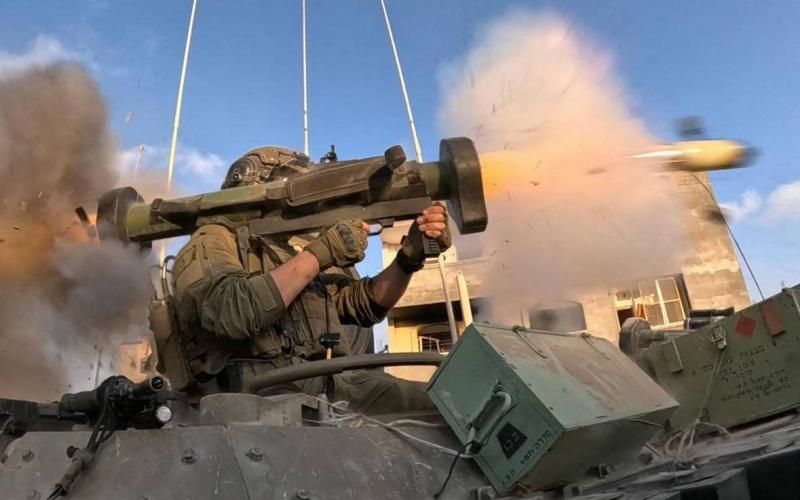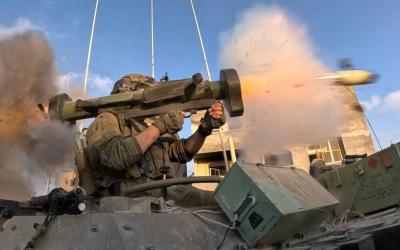Growing warnings regarding the potential for an escalation of conflict in the region have emerged, particularly following the assassination of the head of Hamas' political bureau, Ismail Haniyeh, in Tehran, which exacerbates the risks of igniting a regional war, especially with Iran's vow to respond to what it deemed a "violation of its sovereignty." Iran did not specify the nature or timeframe of its response, with Iranian Deputy Foreign Minister Ali Bagheri Kani recently stating in an official briefing that "it will happen at the right time and in the appropriate manner," amidst global anticipation. This coincided with Iranian President Masoud Bezhakian's call during a phone call with French President Emmanuel Macron for the United States and other Western countries to cease their support for Israel "if they want to prevent the outbreak of war and the spread of security deterioration in the region," according to Agence France-Presse.
On the other hand, Israel announced its readiness, with Prime Minister Benjamin Netanyahu affirming that his country is prepared both defensively and offensively. Israeli government spokesman David Minser stated in a recent press conference: "We know how to deal with this Iranian threat... Together with our allies, we are capable of confronting them." The mutual statements and threats between Iran and Israel ignite speculation globally regarding the scenarios of responses and counter-responses, and whether the situation will spiral out of control leading to regional war, or if the conflict will remain "controlled," with a limited Iranian response aimed at preserving dignity without igniting war, similar to what occurred last April.
**Close Ranks Do Not Reflect Reality of Power**
While everyone awaits the Iranian response and prepares for its repercussions, questions arise about the military capabilities of both parties in the conflict and which has the upper hand, Tehran or Tel Aviv! The "Global Firepower" website, which specializes in military rankings, places both Iran and Israel in close proximity regarding military strength on a global scale, with Tehran ranked 14th and Israel 17th among 145 countries included in the ranking published early this year. The site numerically reviews the capabilities of both countries, noting that Iran has a population of 87 million compared to 9 million in Israel. Iran has 610,000 active soldiers and 350,000 reserves, while the Israeli army comprises 170,000 active personnel and 465,000 reserves.
However, this ranking and numerical superiority do not grant Iran the upper hand, as "the unlimited support of the United States for Israel makes it difficult to compare its military capabilities with Iran," according to Major General Muhammad Al-Harbi, a Saudi political analyst and strategic expert, who confirms to "Asharq Al-Awsat" the "complete military superiority of Israel at all levels." Al-Harbi explains that "Iranian and Israeli missiles and drones can reach deep into both countries, but Israeli air defense systems remain more advanced, whether through the Iron Dome or David's Sling, in addition to U.S. support through the presence of the Fifth Fleet and Central Command in the region."
**Air Power**
Israel possesses a notable advantage in air power, owning 612 military aircraft, compared to around 551 aircraft in Iran, according to "Global Firepower." This number is not the sole reason for Israeli superiority; the International Institute for Strategic Studies in London stated in a recent report that "sanctions imposed on Tehran have impacted the development of its military capabilities," stating that "Iran possesses only a few dozen operational attack aircraft, including Russian and outdated American models acquired before 1979."
Iran’s air force includes models such as "F-4," "F-5," "Su-24," "MiG-29," "F-7," and "F-14," alongside approximately 10,000 drones and over 3,500 surface-to-surface missiles, some capable of targeting Israel. Iran relies on a mix of surface-to-air missiles and both Russian and domestically produced systems, having developed a missile platform known as "Bavar 373," and two air defense systems, "Sayyad" and "Ra'ad," according to the International Institute for Strategic Studies. On the other hand, Israel’s military fleet includes "F-15," "F-16," and "F-35" fighter jets. While Israel's air force lacks long-range bombers, it has "Heron" drones capable of flying for over 30 hours. It also possesses the "Delilah" missile, with a range of 250 kilometers. Israel maintains a multi-layered air defense system, including "Arrow 3," capable of intercepting ballistic missiles in space, "Arrow 2," which operates at lower altitudes, "David's Sling" for medium-range ballistic missiles and cruise missiles, and the Iron Dome for short-range missiles coming from Gaza or Lebanon, according to the institute.
**Controlled Rules of Engagement**
So far, the rules of engagement and tension between Iran and Israel remain "semi-controlled," taking place through proxies and Iranian arms in the region, according to Al-Harbi, who notes that "Israel adopts a methodology of assassinations and strikes on vital sites of Iranian proxies," pointing to what he described as “the tanker war in the Red Sea and Gulf of Aden between Iran and Israel.” The Iranian proxies or arms in the region play a key role alongside the military capabilities of the country, as they can push for a multi-pronged attack on Israel. The U.S. Council on Foreign Relations categorizes Iranian proxies as "Hezbollah in Lebanon, the Houthis in Yemen, Hamas and Islamic Jihad in Palestine, and some groups in Iraq, Syria, and Bahrain."
According to a study by the Center for Strategic and International Studies in Washington, "Hezbollah" may be the most powerful non-state armed organization in the world, with estimates of its rocket arsenal ranging from 120,000 to 200,000 rockets.
Finally, predicting the future of the conflict remains "impossible," as experts specializing in Middle Eastern and African affairs at the Council on Foreign Relations, such as Stephen Cook, suggested that "diplomatic efforts to prevent the escalation of the conflict are likely to fail." In a recently published report, he stated: "The Iranians are vowing revenge, while the Israelis are challenging them and their proxies... This is an unpredictable moment. It is unlikely that the main actors will withdraw from a devastating battle... This is the war they have all been preparing for."




